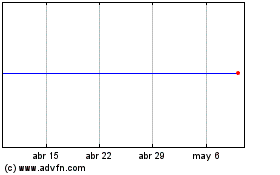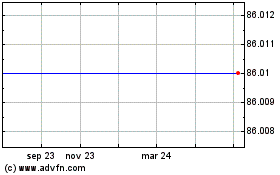(FROM THE WALL STREET JOURNAL 2/23/16)
By Ted Mann and Dana Mattioli
Two of America's biggest industrial companies have explored
combining their businesses, but the talks have stalled amid
disputes over who would run the conglomerate and whether regulators
would allow the deal.
The proposed transaction would combine Honeywell International
Inc. and United Technologies Corp., which make everything from
elevators and thermostats to jet engines and landing gear. But
given the overlap between their business units, especially in
aerospace, such a transaction would face steep regulatory hurdles.
The companies are each worth more than $70 billion and together
employ more than 300,000 people.
The talks began last year when United Technologies approached
Honeywell about a combination, according to people familiar with
the matter, but the two companies have been unable to agree on key
points, including how viable a combination would be and who would
run the merged entity.
A merger proposal from Honeywell followed last fall, but it was
rejected by United Technologies' board because of concerns the deal
wouldn't win regulatory approval, these people said.
In recent weeks Honeywell offered to pay $108 a share, including
about $42 a share in cash, according to a person familiar with the
matter. In exchange, what was previously an offer to conduct a
merger of equals would instead be a takeover by Honeywell with its
chief executive running the merged company, this person said.
Honeywell argued it could squeeze roughly $3.5 billion in cost
savings out of the combination and that antitrust concerns could be
resolved, this person added. But the United Technologies' board
opposed the offer.
In a statement late Monday, United Technologies said combining
two of the biggest players in the aerospace and commercial-building
equipment businesses "would face insurmountable regulatory
obstacles and strong customer opposition." Honeywell had declined
to comment.
United Technologies believes the offer is ultimately worth less
than $108 a share and closer to the mid-$90 range, according to a
person familiar with the company's thinking, since some of the cash
would come from its own balance sheet. The company also doubts
whether the $3.5 billion cost-savings estimate includes sufficient
restructuring costs, this person said.
Honeywell and United Technologies have been on divergent
trajectories over the past two years. Although Honeywell has about
two-thirds as much revenue as United Technologies, its market value
eclipsed its rival's at the end of January.
Shares of United Technologies, which had fallen about 28% over
the past year through Friday, were up 4.7% at $92.37 on Monday in 4
p.m. trading on the New York Stock Exchange. Shares of Honeywell,
which had risen 2.5% over the past year through Friday, fell 2%
Monday to $105.17. News of the talks was earlier reported by
CNBC.
The aerospace industry already has undergone significant
consolidation, including Berkshire Hathaway Inc.'s $32 billion
purchase of Precision Castparts Corp. and Lockheed Martin Corp.'s
$9 billion purchase of Sikorsky helicopters from United
Technologies.
United Technologies generates about half of its $56 billion in
annual sales from its Pratt & Whitney engines and other
aerospace work. Honeywell derives about $15 billion, or nearly
half, of its annual revenue from avionics and other aerospace
parts.
"There is no chance the government will give them a pass," said
Erik Gordon, a professor at the University of Michigan's business
school.
Regulators would be especially concerned with the effects on
aircraft makers Boeing Co. and Airbus Group SE, who would be
reliant on a single combined company for many of the systems and
devices they incorporate into new planes, he said.
United Technologies and Honeywell identify one another as key
competitors in their filings with the Securities and Exchange
Commission, along with General Electric Co. But that didn't stop
them from trying to merge more than a decade ago.
The companies have been "nibbling at each other for years," Mr.
Gordon said.
Under previous leadership in 2000, Honeywell proposed a merger
with United Technologies that would have put the latter in the role
of buyer. But GE jumped in with a higher offer, striking a $40
billion deal to acquire Honeywell. That deal, which would have been
the largest in GE's history, was blocked in 2001 by European
antitrust regulators.
Honeywell has been a Wall Street darling, rising more than 80%
over the past five years, as Chief Executive David Cote and his
team have pursued a series of relatively small acquisitions to
build out the company's offerings. Its product lines now range from
thermostats and airplane radar to oil-refining catalysts and rubber
gloves and boots.
United Technologies has staggered through a tumultuous 24 months
that included the abrupt departure of its former CEO in 2014.
CEO Gregory Hayes has tried to reassure investors that major
bets like a $10 billion investment to develop a new family of jet
engines and expansion overseas to capitalize on urbanization in
Asia will pay off in the long run.
A big deal would be a capstone to Mr. Cote's 14-year leadership
of Honeywell, whose executives have made no secret of their
interest in biting off something bigger.
United Technologies, meanwhile, has focused on slimming down. In
addition to last years deal to sell the Sikorsky helicopter
business, Mr. Hayes has promised to spend $16 billion on share
buybacks.
(END) Dow Jones Newswires
February 23, 2016 02:47 ET (07:47 GMT)
Copyright (c) 2016 Dow Jones & Company, Inc.
United Technologies (NYSE:UTX)
Gráfica de Acción Histórica
De Jun 2024 a Jul 2024

United Technologies (NYSE:UTX)
Gráfica de Acción Histórica
De Jul 2023 a Jul 2024
